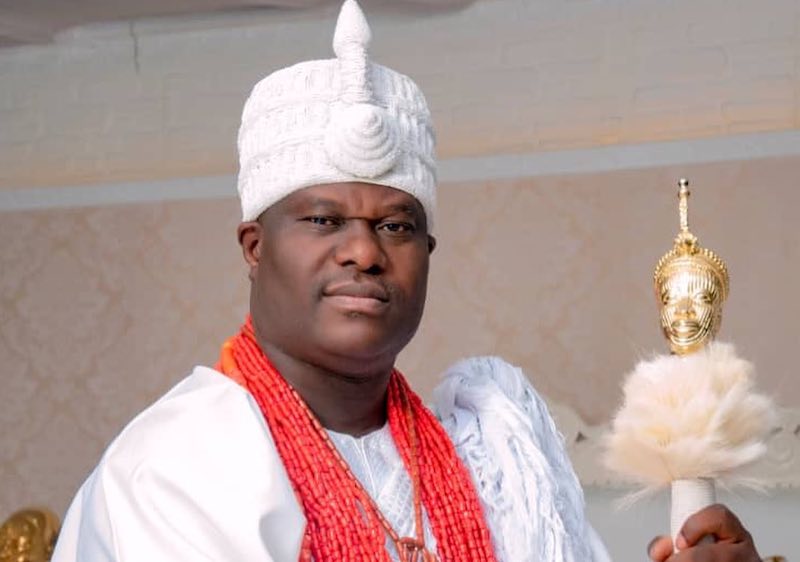Nigeria is facing its worst economic crisis in decades, with skyrocketing inflation, a national currency in free-fall and millions of people struggling to buy food

Kareem Abdulrahman
The Ooni of Ife, Oba Adeyeye Ogunwusi Ojaja II has criticised the Nigerian government for its handling of palliative measures in the face of widespread economic hardship.
Speaking on Channels TV, the Ooni said the government’s response had been inadequate, failing to address the urgent needs of the population suffering from severe hunger.
“The greatest motivation of this “end to bad governance” protests is hunger. People are really hungry,” the prominent monarch stated.
Highlighting the severity of the situation, the Ooni expressed concerns about the lack of substantial palliative measures.
“We are not doing this for monetary support. People are supporting themselves as far as I’m concerned,” he said.
This underscores his point that the community is struggling to manage without adequate official assistance.
The Ooni also addressed issues with bureaucratic delays affecting palliative efforts.
“It is possible that the letter is being delayed by bureaucracy in Nigerian ministries or that the minister is being insincere about receiving it,” he said.
This criticism points to systemic inefficiencies that further hinder timely support.
Nigeria is facing its worst economic crisis in decades, with skyrocketing inflation, a national currency in free-fall and millions of people struggling to buy food. Only two years ago Africa’s biggest economy, Nigeria is projected to drop to fourth place this year.
The pain is widespread. Unions strike to protest salaries of around $20 a month. People die in stampedes, desperate for free sacks of rice. Hospitals are overrun with women wracked by spasms from calcium deficiencies.
Although President Bola Tinubu increased the minimum wage — after strike action and months-long negotiations with labour unions — from N30,000 to N70,000, his government has increased spending for officials at a time of nationwide starvation.
For workers earning the new N70,000, or $43, per month minimum wage, capricious inflation and naira value have inflicted too much damage for the changes to make any difference in their lives.
The crisis is largely believed to be rooted in two major changes implemented by Mr Tinubu, elected 14 months ago: the partial removal of fuel subsidies and the floating of the currency, which together have caused major price rises.
A nation of entrepreneurs, Nigeria’s more than 200 million citizens are skilled at managing in tough circumstances, without the services states usually provide. They generate their own electricity and source their own water. They take up arms and defend their communities when the armed forces cannot. They negotiate with armed kidnappers when family members are abducted.
But right now, their resourcefulness is being stretched to the limit.
Some folks are planning protests to voice their concerns about the economic situation, including rising inflation and poverty, under President Tinubu’s administration.
The protests are expected to happen in the north and other parts of the country, but residents and leaders of the south-eastern region, inhabited by the Igbo ethnic group – have made it clear that they are not going to be part of the mass action.
The planned protests have already ignited debates on social media between Mr Tinubu’s supporters — who had previously advocated for similar protests under former president Goodluck Jonathan in 2012 — and next month’s would-be demonstrators.
Mr Tinubu’s government warned that a breakdown of law would not be tolerated, while Nigerians were furious that the same individuals who, in 2012, organised demonstrations against Mr Jonathan’s government for terminating fuel subsidies are now aggressively opposing the same cause under a different leader.
KOIKI Media bringing the world 🌎 closer to your door step
